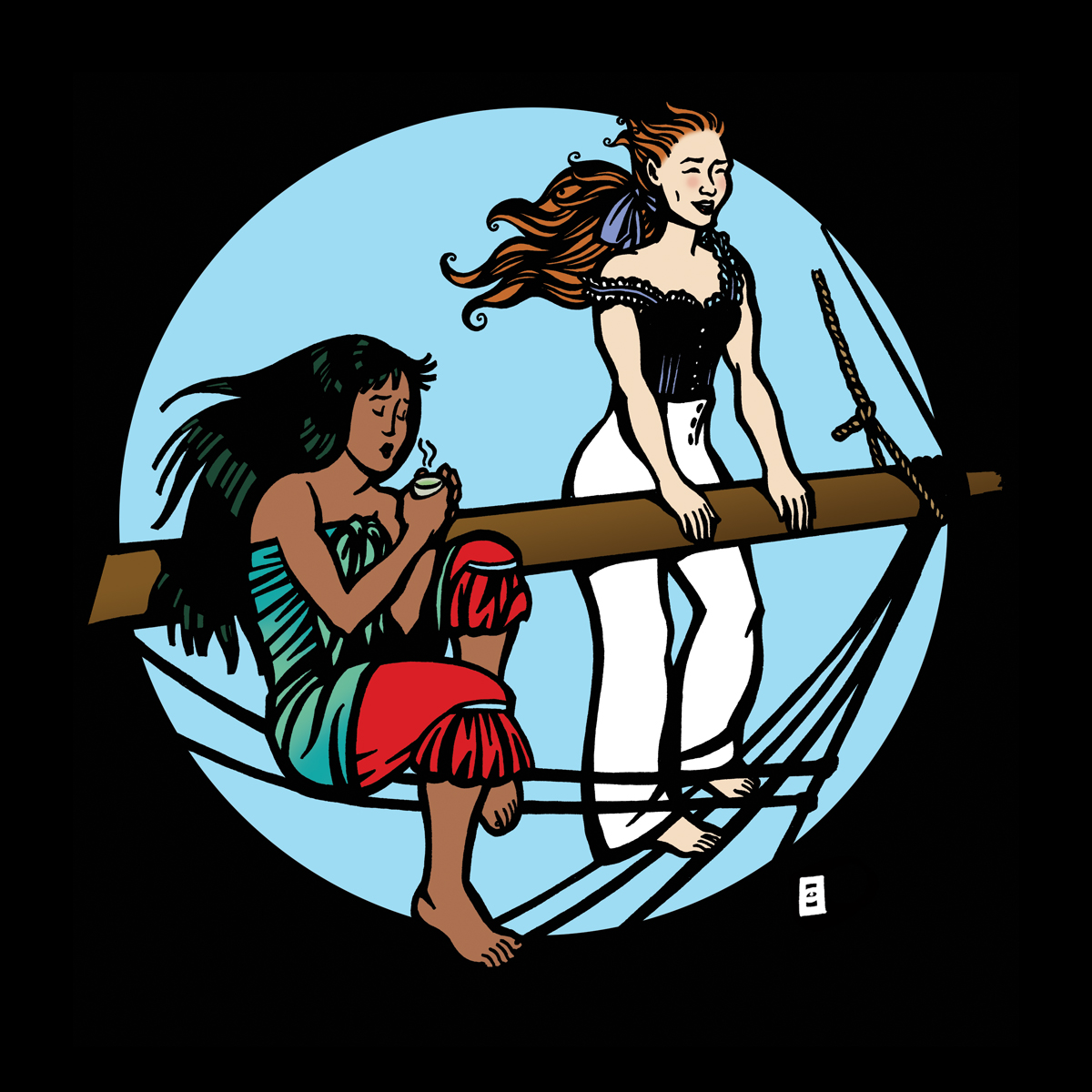What the Hell?
"If a thing is worth doing, it's worth doing slowly...
very slowly." - Gypsy Rose Lee
very slowly." - Gypsy Rose Lee
 A Mary Tale
A Mary TaleOriginally, the Lay of the Lacrymer was going to be a bawdy romp involving 4 middle-aged women roaming around the seven seas enjoying all manner of sexual experimentation. Ahem. I was in my late 30s when I started thinking about it, having experienced many, many years of infertility, and was beginning to ask myself what made me a woman if I wasn’t going to be a mother? This brought up a blank (for me, hopefully not for most women), and I decided I needed a big, juicy, not-about-mothering, drawing project. I love ships, I love the sea, I love my friends, what fun! And then I started writing it, and, as often happens with me, instead of being about sex, it was about death. And mothering. And sex. But big “D” Death, medium “M” mothering, and little “s” sex.
So it goes.
And goes, and goes. I started seriously plotting and writing Lacrymer in mid-2009. I laid out all the major plot points, and wrote out the last scenes. I didn’t write every panel, because, quite frankly, it seemed extremely daunting. I do best when I work a bit, then go away for awhile, then come back. So I wrote out the first 3 months of panels, and started to draw. In my head, Lacrymer was going to end up being a few hundred pages, at best. At the time, I’d never done a comic that was more than a few pages, and I could barely imagine making it to page 100.
Ha ha ha ha ha!
I really enjoy the work of the writer, Diana Gabaldon. I would read her grocery lists, I love the way she writes so much. I’d once read an interview with her in which she described a portion of her creative process—always a fascinating topic. My impression was that many of the scenes came into her consciousness in chunks, characters saying this and that, and then she used her (considerable) skills to string everything together into a coherent and delicious whole. I’d never experienced anything like that, my process being incredibly slow, long, plodding, and reasonably linear. With Lacrymer, though, not long after I started focusing my full attention on it, it just sort of took off.
The characters started having long conversations in my head without any help from me. New characters popped up, established ones surprised me, and my “creative process” became like watching a very engaging (to me) stage play I had never read the script for. In short, making Lacrymer became a great deal more fun than anything I’d ever made before. It was the creative version of runner’s high. Or something. And then, as well, it started reflecting my own life, and the lives of my friends, in ways I couldn’t predict. A bit spooky, but also fun, and I try not to edit things too much for fear something terrible will happen, but, well, it’s so much more exciting than I’d expected. I believe deeply in art therapy, and boy, I’m having conversations with my unconscious that range far beyond my wildest hopes. I still know the ending of the story, but now I have no idea how long it’s going to take to get there.
As I write this, Mary and Sal are stuck in Faerie, and I’m not entirely sure how they’re going to get out, but they have to, as there’s a big wake being planned and…and so on.
Years ago I was introduced to the concept of the “wind horse (inexactly, it turns out, but that’s par for the course when dealing with white people versions of non-white traditions. I’m a Californian. I’m used to it)”. What caught my interest is the idea that everyone has something, or somethings, that fill them with joy and purpose and carry them forward. A wind horse. Lacrymer has been my wind horse since I began to allow myself to think about doing an art project just for fun. Just for me. It had been a long while since I’ve done that, and working as a commerical artist for 20 years can put a corset on one’s ability to put one’s own delights above the practical considerations of others. Once I did, several decades of delight came pouring out, and now I’ve been swimming in that sea long enough not to want to ever leave it for long.


